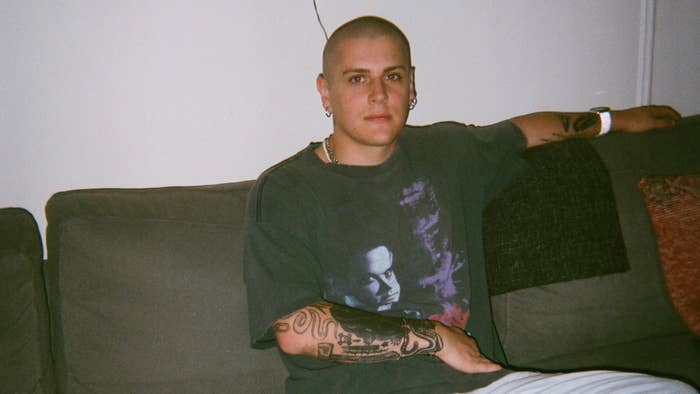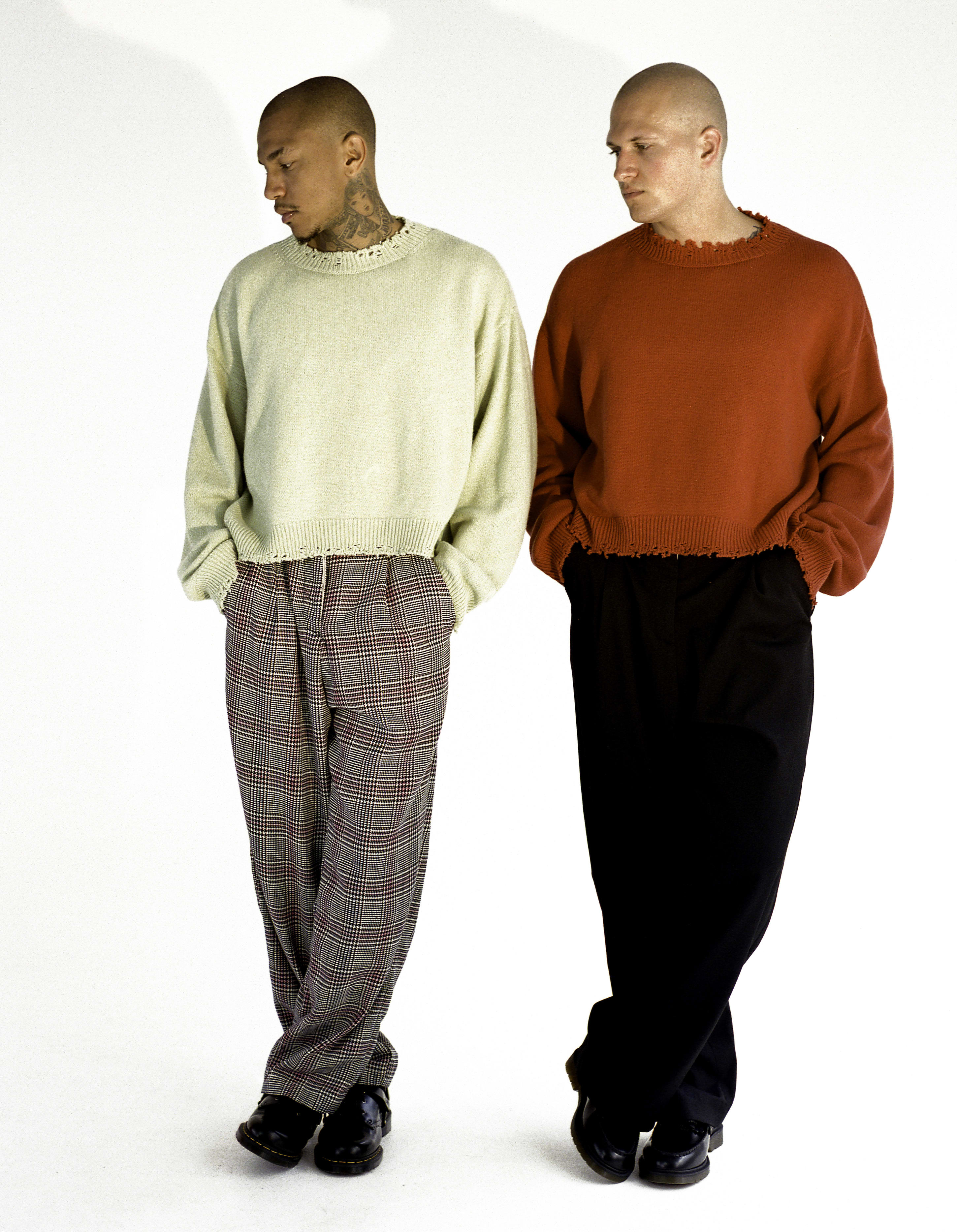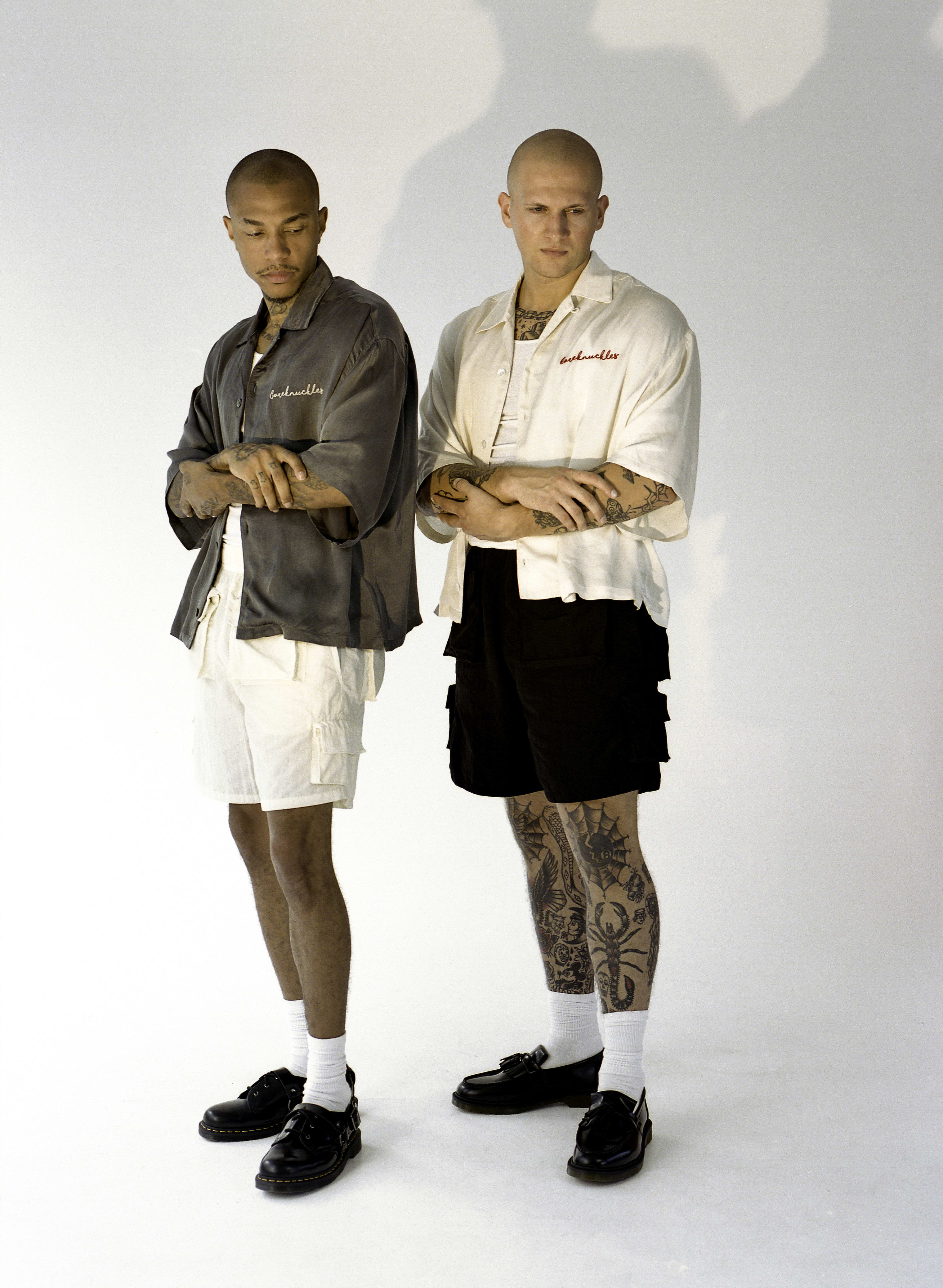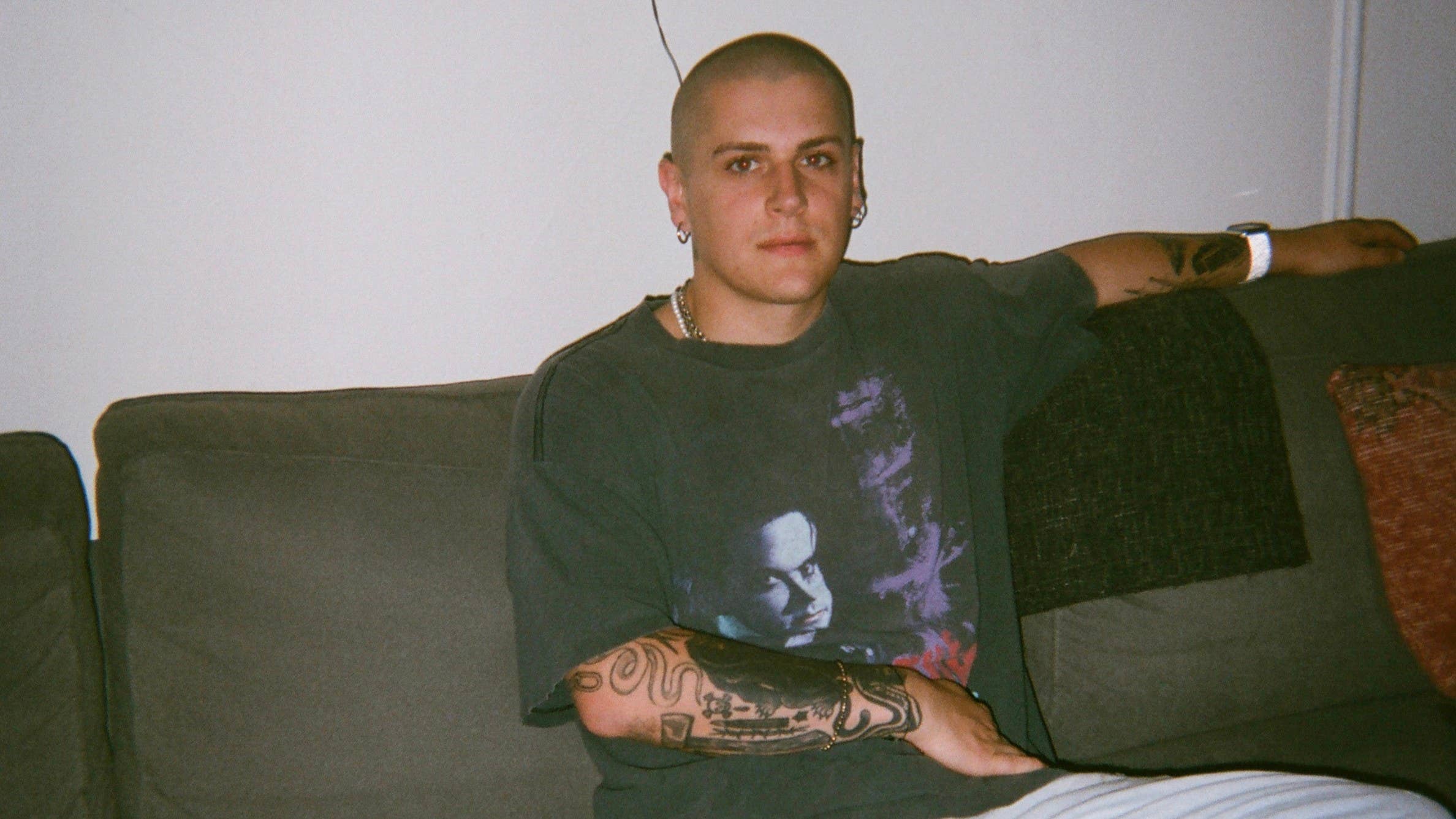
Looking at 27-year-old Jacob J. Keller’s Internet presence, which spans seven years, is like looking at the progression of streetwear. Seven years ago, he was on his YouTube page, named AlwaysFreshApparel, rocking flat-brimmed snapbacks, Been Trill T-shirts, and Air Jordan retros. Today, his look, which is prominent on his Instagram account, is much more refined. His uniform includes relaxed fit denim, perfectly distressed vintage band T-shirts, and black leather loafers.
“I obviously cringe at some of the old videos, but I think that period of fashion was honestly more fun than it is now. Maybe it's just because I was getting into it, but there was something, I don't know man, maybe it's nostalgia,” says Keller. “I'm not embarrassed by [my old style]. I think it was good. I think everyone went through it. I don't think everyone was wearing Saint Laurent out of the womb.”
On AlwaysFreshApparel, which Keller started in 2012 and still maintains roughly 153,000 followers despite being essentially dormant for the past few years, Keller posted streetwear hauls, brand spotlights, and “on body” looks at outfits. He highlighted streetwear trends and brands like Black Scale, SSUR, and Mishka. The format was relatable and accessible. Most of his viewers complimented his purchases and outfits in the comments section of every video. It was like their interest in fashion was growing right along with his. He had brand deals with online stores like Karmaloop and PLNDR. Keller was essentially an influencer before the term even existed, but that’s never really a label he wanted.
“I think that route is played out and corny. The real people influencing aren’t saying they’re influencing,” he says.
Now, even though he believes AlwaysFreshApparel was a launchpad for where he is today, Keller is less focused on his YouTube audience and more interested in operating his own clothing brandBare Knuckles, a name inspired by a line from an episode of British drama series Peaky Blinders. It launched in 2018 and Keller will release its fourth collection in the coming weeks.

Bare Knuckles is more than just another T-shirt and hoodie brand. It provides elevated takes on menswear staples, usually with some type of vintage twist. He nor his partner Cole McBride have formal design training, but they reference products, vintage or otherwise, that they like. They want it to, “feel like it’s been worn for 30 years without actually being worn.” The third season offered items like boxy camp collar shirts, oversized trousers, cropped cashmere sweaters, and tactical cargo shorts that were recently spotted on ASAP Rocky’s stylist Matthew Henson at Milan Fashion Week.
He came to this place as fashion designer through a series of jobs. While YouTube is a big money maker now, when he was on the platform he only earned about $600 a month from ad revenue. Like most teenagers, he relied on odd jobs like refereeing youth basketball games and manning the counter of his cousin’s pizzeria to fuel his shopping addiction. The restaurant happened to be in close proximity to Nike and Adidas’ headquarters, and Keller would meet employees from both companies.
Upon graduating from Portland State University in 2015 where he studied advertising and marketing, he landed a job as a Global Brand Specialist at Jordan Brand. The position only lasted a few months as Keller stepped away to pursue his passion for clothing and design instead of renewing his contract with the company.
“Obviously I knew I could work my way up in that world and maybe potentially be able to make it to NikeLab or whatever, but more than ever this avant garde clothing was pulling at me. While working at Jordan Brand, I was shopping at Machus,” says Keller. “I told them, ‘Hey, if I don't renew my contract, can I come work for the store?’ And they were like, ‘Of course.’ So, that was the reason I didn't continue at Jordan Brand. I wanted to dive into this field of clothing versus sportswear.”
Keller would manage the Portland-based boutique for the next three years. This is where he became interested in brands like Rick Owens and Raf Simons. While working there, he soaked up as much about the business as he could. He also met his Bare Knuckles partner, Cole McBride. The duo funded the first collection entirely with their savings. “We basically went broke to make the brand work,” says Keller. To this day, he says most of the money they make from sales is poured right back into funding the next collection.
“I give [Machus] a lot of credit for all of my brand knowledge now. I've learned so much about brands, how they position themselves, and why their price point is the way it is by working at the shop. I don't remember how I stumbled upon it, but I'm very glad I did,” says Keller. “I even flew to Paris. I went to LA to do some buying for fashion week and all that stuff. I really got my hands in a lot of stuff that I feel like if I went to a bigger store, I wouldn't have been able to.”
Keller says that for now, his retail background at Machus has helped him launch the line without formal design training.
“Working retail, you see a lot of things that maybe you'd tweak, you wished fit differently, or maybe there was a color you wish you had,” says Keller. “I'd like to learn [formal design] at some point, but I think if we can make unique enough clothes without having to really be that skilled in it, I think that's cool. It's kind of like this whole DIY kind of a movement.”
All of the clothing is produced in Los Angeles at the factory of Charlie Gianetti’s factory, the same place producing pieces for other young brands like Reese Cooper. That means Keller and his partner do a lot of flying back-and-forth to guarantee their sketches are executed correctly, a small caveat of stationing the brand in Portland. Still, Keller stands by the decision to stay rooted in his hometown saying that the locals show a ton of love, and he enjoys representing the City of Roses. The brand is currently sold via the Bare Knuckles online store, but Keller and McBride have also operated pop-ups in Portland and plan on expanding the experience to other cities like New York and Los Angeles. Wholesale might be in the plans somewhere down the line, but not right now due to the collections pricing, which ranges from $50 to $380.

“We've been approached by some big name retailers. We have decided that we don't want to go that route yet. One, because our price point is not built for retail. If we went to retail it would have to be even more expensive. We just don't want to do that because we are consumers first. Price point is important to us because if something is too expensive, we won't buy it,” Keller tells Complex. “Two, the whole cost point of the retail thing, like only making the wholesale amount. We've had to borrow money a few times for the collection so for us stacking up as much money as we can is really important to us right now. If you go to a retailer, you make barely any money. We can kind of do things on our own pace, at our own speed, and at our own schedule. So that's something we really like.”
Keller’s journey to his own brand certainly isn’t a conventional one. Everyone has to start somewhere, and his path just happened to begin in front of a webcam on YouTube. Although he fears the YouTuber stigma might make some people take him less seriously, he says that many already view Bare Knuckles as a genuine brand and not “some YouTuber making clothes.” When it comes to his advice for other aspiring young designers, it’s pretty simple.
“I think that we are living in a world now where more people are into fashion than they ever were before. You have a lot more options for customers. So, why not do it now?” says Keller. “People are also spending way more money on clothes than they ever did. Back in 2012, it was $30 for a T-shirt. Now, a good T-shirt is like $90, and people are buying it. That was the first thing that sold out for us was our T-shirts. Just go for it.”


